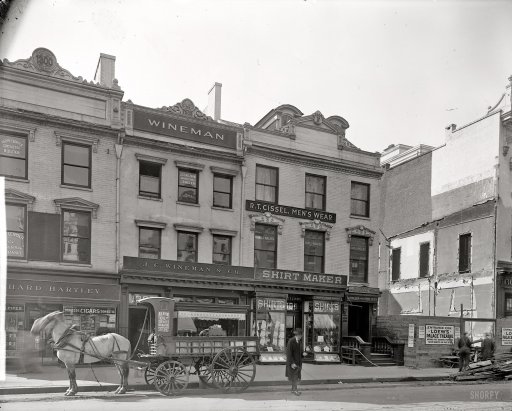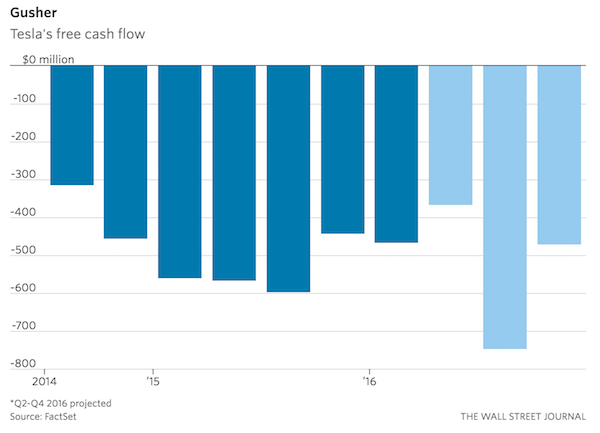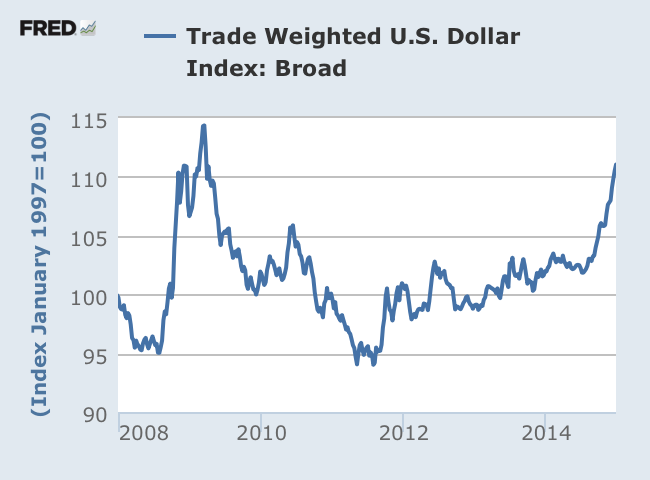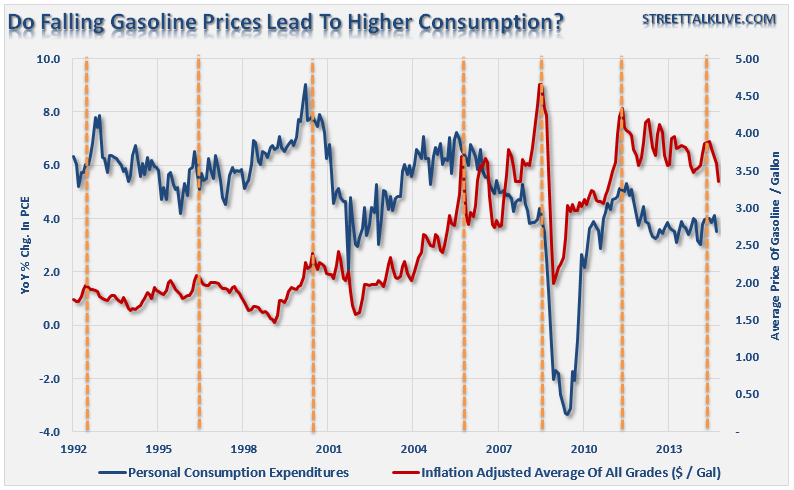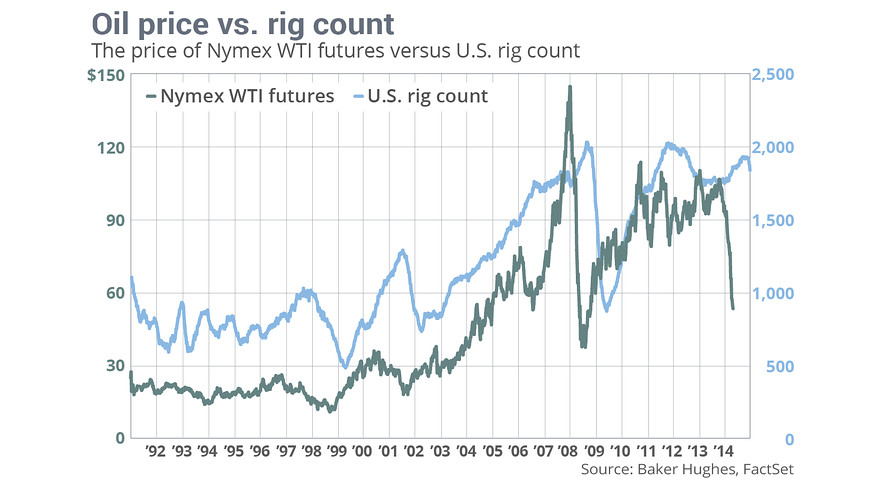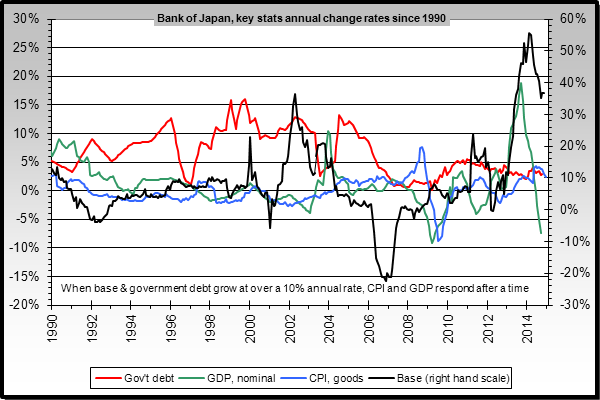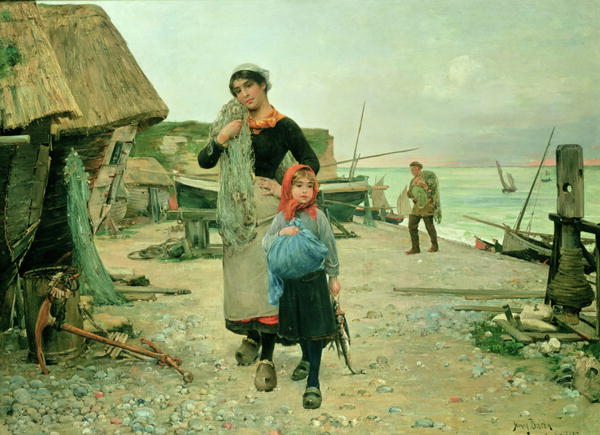
Henry Bacon Fisherfolk returning with their nets, Étretat 1890

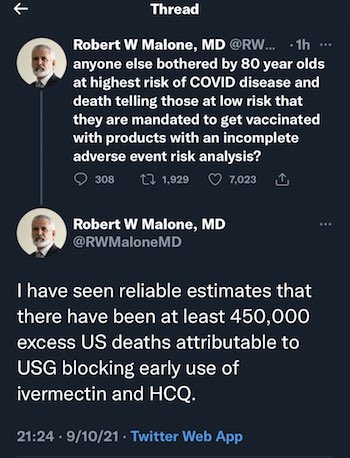

Portugal
https://twitter.com/i/status/1436765211076272134



“September 9 may go down in the history books as the day all hell broke out in earnest.”
• Joe Biden’s Vaccine Order May Lead America To Another Civil War (Bridge)
[..] aside from the question of personal health, there is the question of politics – bad politics, to be more precise. First and foremost, Joe Biden blatantly lied to the American people when he promised to never force vaccines on the country. At the same time, he snubbed Congress and the states by empowering the Department of Labor’s Occupational Safety and Health Administration (OSHA) to enforce the vaccine mandate – yet another example of Biden abusing the executive office. The Republicans, who have gone to great lengths to keep their cities and states open for business during the pandemic, are vowing to fight Biden’s “unconstitutional” mandate every step of the way, up to and including a likely battle in the Supreme Court.
Former VP Mike Pence even came out of political hibernation to weigh in on the news, saying that “scolding” the American public was “not the American way – and I expect the response they are going to get across the country will prove that.” Despite the Democratic Party’s incessant claims that Donald Trump was a “tyrant” and “dictator,” the raft of executive orders that Joe Biden has rammed through Washington, DC are enough to make a Caesar blush. Forcing Americans to submit to medical treatment is Biden’s personal ‘crossing the political Rubicon’ – another one of those “you’re either with us or against us” type of moments that colored the Bush-era “war on terror.”
In this latest chapter of American history, however, the unvaccinated are at risk of standing in for the likes of al-Qaeda and Islamic State. Indeed, given the level of liberal lunacy now infecting every square inch of the America cranium, the unvaccinated could become the targets of a virtue-signaling hate campaign that could easily get out of control, especially when it is considered that there are more guns in America than Americans. Whatever the case may be, when future historians sit down to write about the America of the early 21st century and its second civil war, September 9 may go down in the history books as the day all hell broke out in earnest.

“The problem is that the thing being “worked around” is the Constitution.”
• Vaccine Mandate is a “Work Around” the Constitutional Objections (Turley)
In the law, it is called an admission against interest or an out-of-court statement by a party that, when uttered, is against the party’s pecuniary, proprietary, or penal interests. In politics, it is called just dumb. White House chief of staff Ronald Klain offered a doozy this week when he admitted that the announced use of the authority of the Occupational Safety and Health Administration (OSHA) for a vaccine mandate was a mere “work around” of the constitutional limit imposed on the federal government. The problem is that the thing being “worked around” is the Constitution. Courts will now be asked to ignore the admission and uphold a self-admitted evasion of constitutional protections.
Notably, before inauguration, Klain publicly assured the public that Biden would that, on “his first day in office, I will issue a nationwide masking mandate, requiring that people wear masks where the federal authority extends and then urging governors and other local officials to impose mask mandates in their states.” That statement was then walked back due to the lack of legal authority to issue such a mandate. Klain retweeted MSNBC’s Stephanie Ruhle, who posted, “OSHA doing this vaxx mandate as an emergency workplace safety rule is the ultimate work-around for the Federal govt to require vaccinations.” The “work around” was needed because, as some of us have previously during both the Trump and Biden Administration, the federal government does not have clear authority to impose public health mandates. Authority for such mandates has traditionally been recognized within state authority.
Make no mistake about it. This is a clever move to use the OSHA as the vehicle for the mandate to avoid the federalism issues of a direct mandate. President Joe Biden has been ping ponging on the issue for over a year in first suggesting that he could impose a national mandate and then admitting that he probably could not. Ironically, this move comes on the same day that Attorney General Merrick Garland denounced the “clever” use of the Texas abortion law to make it more difficult to challenge. Judging from the praise for Garland, it appears that such work arounds are noble when done for the right cause. The question is whether this clever work around will in fact work. It might, but there are ample grounds for challenge. Under this interpretation OSHA could impose a federal mandate for any measure that impacts workers, including public health measures not directly linked to a given workplace or job. That may be more of a sticker shock for some on the federal bench, including some justices.

If it wasn’t criminal before, it sure is now.
• BioNTech ‘Preparing Production’ Of Covid-19 Vaccine For Children Under 12 (RT)
German company BioNTech, which in partnership with Pfizer developed one of the most widely used anti-Covid shots, says it’s preparing for the worldwide launch of its jab for younger recipients and might get approval in October. An mRNA vaccine against coronavirus for children aged between five and 11 years old could be approved for use in Germany in a few weeks’ time, as early as by mid-October, Der Spiegel reported on Friday. “In the coming weeks we will present the results of our study on the five- to eleven-year-olds to the authorities worldwide and apply for approval of the vaccine for this age group, including here in Europe,” one of the founders of the BioNTech company and its chief medical officer, Ozlem Tureci, told the German media outlet, adding, “We are already preparing the production.”
Pfizer is also said to soon have enough data from clinical trials to seek emergency use authorization for the five to 11 age group, according to a report from Reuters. The US Food and Drug Administration (FDA) could clear the vaccine for use in younger children by the end of October, unnamed top US health officials told the news agency on Friday. The vaccine to be used in younger children is the same as the one used for adults, but in smaller doses, Tureci explained. The company had already received trial results – which “look good” – and now only needs clearance from authorities, her husband, BioNTech chief executive Ugur Sahin, told Der Spiegel. By the end of the year, the company is expecting to receive data from studies of the vaccine in even younger recipients, aged just six months old and above, according to Sahin.
In the summer, Israel green-lighted vaccination for children aged five to 11 with the Pfizer-BioNTech shots, in cases where there are risks of serious health complications. In the UK, the government’s vaccine advisory body has recently refused to approve coronavirus jabs for healthy children between 12 and 15 years old, recommending that only patients with underlying health conditions should receive the shot. No anti-Covid vaccines have been so far cleared for use in children under 12 in the EU and the US.

Hinton
Kid COVID vaccines. My personal story. Please watch and if you are as concerned as I am please retweet and post to Facebook Instagram Ticktok and anywhere else you can think of. Thank you all so much. #safertowait #leaveourkidsalone #usforthem #together pic.twitter.com/31fG9Mr1J5
— Dr Anthony Hinton (@TonyHinton2016) September 11, 2021
Irish Times “Rising proportion of vaccinated people in hospital reflects greater numbers in population getting vaccines..”
Yeah, yeah. Meanwhile the “it protects against severe disease” mantra is DOA: Of 55 patients in ICU, 26 were fully vaccinated, two were partly vaccinated, and 26 had received no vaccinations
• Covid: 54% Of Hospital Patients With Virus Are Fully Vaccinated (IT)
About half of all Covid-19 patients in hospital and in intensive care are fully vaccinated against the disease, new figures show. One-sixth of deaths of people with the virus since April have been categorised as breakthrough infections of fully vaccinated patients, according to Health Service Executive data. More than one-quarter of ICU admissions since July were also breakthrough infections of fully vaccinated people. The proportion of vaccinated people requiring treatment in hospital has been increasing over recent months, as the number of vaccinated people in the wider population has risen. Vaccination has drastically reduced the overall number of infections and reduced the severity of infections where they occur. However, the number of breakthrough infections has increased as the population of vaccinated people has grown.
At the end of August, 54 per cent of Covid-19 patients – or 168 patients – were fully vaccinated. Some 44 per cent were not fully vaccinated, and in 2 per cent of cases, the vaccination status was unknown. Data on vaccination was available for 311 of the 323 patients then in hospital. Of 55 patients in ICU, 26 were fully vaccinated, two were partly vaccinated, and 26 had received no vaccinations. Some 72 per cent of all patients in ICU since late June had an underlying condition. Between April and August, there were 193 Covid-19 deaths. Of the 178 patients whose vaccination status was known, 30 were at least 14 days after receiving the final dose of vaccine.
Health officials point out that although the majority of Covid-19 cases in hospital now involve vaccinated people, the overall number of hospitalisations is smaller due to the impact of vaccination. “The rise in vaccinated patients in hospital is not a surprise as more and more people have been vaccinated,” said HSE chief clinical officer Dr Colm Henry. “Vaccines were never going to be 100 per cent effective against infection; their big contribution is in preventing serious illness.”

“The majority of patients in your hospital are not Covid patients, they are vaccine-injured people.”
And Delta doesn’t exist, is not tested for.
• Nurse Destroys “Delta” Narrative, Vaccinated Patients Fill Hospital! (CTH)
This is not random speculation or an anecdotal claim. To further support the real-world outline explained by the nurse, CTH has received some very specific details from inside the medical system where board certifications are determined. What follows below is not connected to the discussion above; however, specific leaked documents provided to CTH support what that nurse is saying. Doctors in general, and pediatric doctors specifically, are being told by licensing boards & regulatory agencies tied to the political systems of healthcare – that medical providers board certification and licensing could be in jeopardy if they are found to be discussing negative vaccine outcomes and/or contradictory issues about COVID-19 treatment in non private settings.

https://twitter.com/ezralevant/status/1436902376389152768
‘Myself, I would make it just vaccinate or not – but he is trying to be moderate in what he was pronouncing.’
• Fauci Tells Biden To Go Further (DM)
Dr Anthony Fauci has said he would have supported more extreme measures to force Americans to be vaccinated against COVID-19 – describing President Joe Biden’s plan as ‘moderate’. Biden on Thursday announced that all companies employing more than 100 people must insist on either proof of vaccination or regular COVID tests. His policy was greeted with anger by many Republicans, who described it as heavy-handed and an infringement on their personal freedoms. But Fauci, Biden’s chief medical advisor, said on Friday that he would have backed more intense options. ‘The president is being somewhat moderate in his demand, if you want to call it that,’ Fauci told CNN.
‘There are some people who really don’t want to get vaccinated but they don’t want to lose their job. ‘You’ve got to give them an off lane. And the off-lane is that if you get tested frequently enough and find out you’re positive you won’t come to work and you won’t infect other people. ‘It really is somewhat of a compromise there. ‘Myself, I would make it just vaccinate or not – but he is trying to be moderate in what he was pronouncing.’ Biden’s sweeping new vaccine requirements have Republican governors threatening lawsuits, but he has argued that it is essential to bring down stubbornly-high infection rates and get the country back on track.
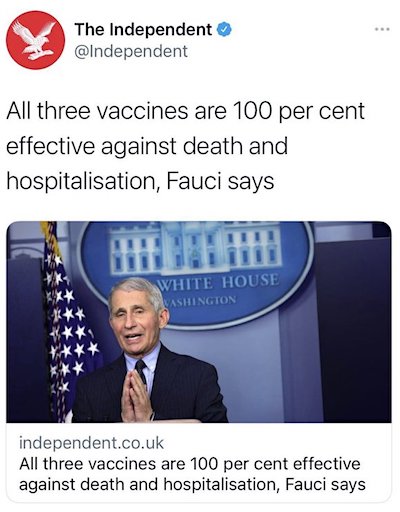

Ha.
• Why Dr. Fauci is Going to Be the Happiest Dude on Earth (FLCCC)
In August, 2021, Dr. Anthony Fauci was asked to describe what he would want in the perfect anti-viral COVID-19 therapeutic. What he described was ivermectin—a safe, cheap, globally available, highly effective Nobel Prize-winning drug that can end the pandemic with widespread use.

No you don’t.
• I Hate Being Right (Denninger)
I told you a few weeks ago I was seeing very disturbing data that strongly suggested the jabs were, in some form or fashion, destroying existing immunity or otherwise potentiating more-severe disease. I didn’t have the hard data to quantify it, but I’ve mentioned the drift in the data streams for some time now. It was clear and convincing, but not quantifiable. Until now. I didn’t then (and still don’t) know the mechanism; I don’t have billions of dollars of lab laying around I can play with. But on the data it was happening; it was not conclusive but the evidence shift was clear in the data pattern; what had been protection from being harmed if you were jabbed was trending toward neutral in the aggregate and anecdotes suggested harm. Well, now we have it, and yeah, it’s harm.
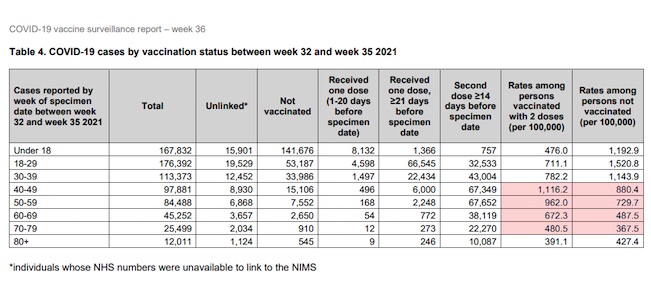
Note the right two columns. They adjust for per-100,000, which is the only accurate way to do it — you must adjust raw rates for the population prevalence of the specific condition under test. This data shows conclusively that for anyone between 40 and 79 being vaccinated makes it more-likely for you to get Covid-19. That means what you think it does: If you took the jabs you are the plague rat; you are more-likely to get (and thus transmit) the disease than an unvaccinated person. Britain had studiously avoided publishing the ranged data like this in their updates until now. I don’t know why they did it this time but it doesn’t matter. Their data continues to claim that the jabs are effective in preventing hospitalization and death but the exact opposite is true when it comes to getting Covid-19 which means those who are vaccinated may acquire personal protection but in doing so become Angels of Death to others. If you have trouble with numerical tables here it is in bar charts:
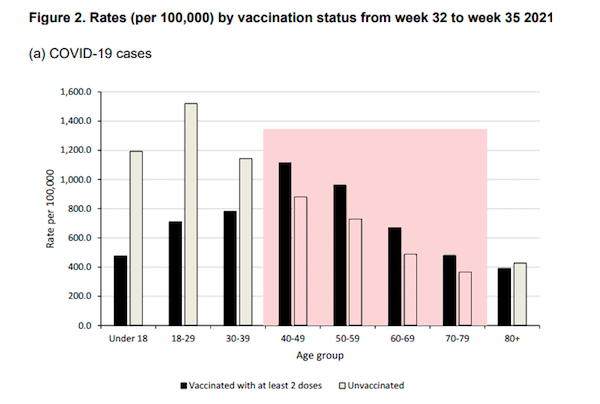
In addition this is arguably one of the most-immune populations — or should I say allegedly immune — on the planet. “In this report, we present the results using a 4-weekly average, of testing samples up to 27 August 2021, which takes account of the age and geographical distribution of the English population. Overall, the proportion of the population with antibodies using the Roche N and Roche S assays respectively were 18.1% and 97.7% for the period 2 August to 27 August (weeks 31 to 34) (Figure 3). This compares with 18.2% Roche N seropositivity and 97.0% Roche S seropositivity for the period of 5 July to 30 July (weeks 27 to 30).”
In other words 97% of the population has either infection-acquired immunity or vaccination-acquired “alleged” immunity. That is so close to 100% it is indistinguishable and makes clear that Biden’s actions not only won’t work they can’t because even with effectively 100% coverage Delta continues to go straight through vaccinated individual’s immunity and, as the above data shows, the vaccinated are the ones spreading the virus. They are literal plague rats killing the unvaccinated who have not seroconverted. Let me be perfectly-clear: The vaccines are worthless in stopping the acquisition and transmission of disease. With nearly 100% antibody coverage if the jabs worked at all Britain would be a literal dead-end for anyone who got the virus and it would be gone there.
It isn’t which is hard, scientific proof that the jabs do not work to stop Covid-19 from circulating in the population and this data proves that in fact it makes infection and transmission more likely rather than less in very large swaths of the population as a whole. The seroconversion prevalence by prior infection is very close to the NEJM numbers for the United States. As such we can expect the same outcome here; if you are seroconverted you are safe and sterile immune but if you are vaccinated and between 40 and 79 you are not only getting Covid you are infecting and killing those who have not seroconverted via infection and in fact are driving both unvaccinated and vaccine-failure infections leading to serious disease and death.

“We are not alone. There are thousands of positions that are open north of the Thruway..”
• NY Hospital To Pause Baby Deliveries As Staffers Quit Over Vax Mandate (Kiro)
An upstate New York hospital said it will pause the delivery of babies in two weeks because of a spate of resignations by maternity unit workers who are objecting to COVID-19 vaccination mandates. Lewis County General Hospital, in Lowville, will temporarily stop delivering babies after Sept. 24, WWNY reported. During a news conference Friday afternoon, Lewis County Health System CEO Gerald Cayer said seven of the 30 hospital workers who resigned were from the hospital’s maternity ward. He added that another seven maternity unit staffers were undecided about getting the vaccine, the television station reported. The workers were objecting to a Sept. 27 deadline to receive a first dose of the COVID-19 vaccine, the Watertown Daily Times reported. Then-Gov. Andrew Cuomo issued the state mandate on Aug. 23.
Twenty of the staff members who resigned worked in clinical positions like nurses, therapists and technicians, the newspaper reported. “If we can pause the service and now focus on recruiting nurses who are vaccinated, we will be able to reengage in delivering babies here in Lewis County,” Cayer told reporters. Cayer said 165 hospital employees, or 27% of the facility’s workforce, have yet to be vaccinated against COVID-19, WWNY reported. There have been 464 workers who have received the vaccine, Cayer said. “Our hope is as we get closer (to the deadline), the numbers will increase of individuals who are vaccinated, fewer individuals will leave and maybe, with a little luck, some of those who have resigned will reconsider,” Cayer told reporters. “We are not alone. There are thousands of positions that are open north of the Thruway and now we have a challenge to work through, you know, with the vaccination mandate.”
Cayer stressed that the hospital will not be “shutting down services,” the Daily Times reported. “It just is a crazy time,” Cayer told the newspaper. “It’s not just LCHS-centric. Rural hospitals everywhere are really trying to figure out how we’re going to make it work.”

“..nearly a quarter of school district staff have not provided their vaccination status to the district.”
• S.F. Schools Report No Covid Outbreaks (SFC)
No COVID-19 outbreaks have occurred in San Francisco schools since they reopened to in-person learning in mid-August, and case rates have remained steady among young children in recent months, even as the highly contagious delta variant has spread, according to data released Thursday by the Department of Public Health. Just 13 city children have been hospitalized because of the coronavirus since the pandemic started in early 2020, and none are currently, officials said. Of San Francisco’s 118,000 children, 5,543 have had the virus, and none have died from it, according to city data. The San Francisco numbers defy national trends that have shown large rises in cases and hospitalizations among school-age children overall during the delta surge. Nationally, communities with low vaccination rates — and no mask mandates in public spaces and schools — have seen skyrocketing pediatric cases.
Since the city’s public and private school classrooms reopened in recent weeks, there have been no coronavirus outbreaks and fewer than five cases because of in-school transmission, health officials announced Thursday. San Francisco Unified has had no confirmed cases of in-school transmission this fall, and none in the spring, Superintendent Vince Matthews said. “This data affirms that the health and safety measures we have in place — including universal masking, improving ventilation, providing (personal protective equipment) and requiring all staff to be vaccinated — are keeping our schools safe,” he said. The district requires staff to either be vaccinated or tested weekly, but nearly a quarter of school district staff have not provided their vaccination status to the district.

If Delta is really just vaccine side effects, then what good would this do?
• Clinical Grade ACE2 As A Universal Agent To Block SARS-CoV-2 Variants (Bxiv)
The recent emergence of multiple SARS-CoV-2 variants has caused considerable concern due to reduced vaccine efficacy and escape from neutralizing antibody therapeutics. It is therefore paramount to develop therapeutic strategies that inhibit all known and future SARS-CoV-2 variants. Here we report that all SARS-CoV-2 variants analyzed, including variants of concern (VOC) Alpha, Beta, Gamma, and Delta, exhibit enhanced binding affinity to clinical grade and phase 2 tested recombinant human soluble ACE2 (APN01). Importantly, soluble ACE2 neutralized infection of VeroE6 cells and human lung epithelial cells by multiple VOC strains with markedly enhanced potency when compared to reference SARS-CoV-2 isolates. Effective inhibition of infections with SARS-CoV-2 variants was validated and confirmed in two independent laboratories. These data show that SARS-CoV-2 variants that have emerged around the world, including current VOC and several variants of interest, can be inhibited by soluble ACE2, providing proof of principle of a pan-SARS-CoV-2 therapeutic.

“Australian authorities are breaking the law by creating a situation “in which the individual is left with no real choice but compliance.”
• QLD Police Raise Funds To Legally Challenge Covid-19 Vaccination Mandate (RT)
Queensland police officers have set up a fundraising page, garnering money to hire a lawyer and challenge the mandating of vaccines for law enforcement employees. They say the new directive “infringes upon the right to freedom.” The initiative, coming from “a group of concerned Queensland police officers and their families,” had raised over $45,000 by Saturday – twice as much as their initial goal. Police officers, who claim the matter “is not pro- or anti- vaccine,” say they need the money to get legal help and work with a law practice to challenge a recently introduced measure to fight the spread of coronavirus. According to the newly implemented directive from the Queensland Police Service (QPS) Commissioner Katarina Carroll, “the entire workforce in all QPS workplaces within the next five months” must be subjected to vaccinations and be fully inoculated by January next year.
The disagreeing police officers said no employees in any private or public sector, not just within law enforcement, can be forced into medical interference. “It is a question of whether our employers on behalf of the government can authorize civil conscription and interfere with the relationship between a patient and their doctor by mandating a vaccine,” their statement said. “Mandatory vaccination policy…infringes upon our rights to freedom and informed consent to a medical procedure,” it added, suggesting that Australian authorities are breaking the law by creating a situation “in which the individual is left with no real choice but compliance.”

India. ” It asserts that the API is both consent-based and privacy preserving.”
• CoWIN KYC-VS API Introduced to Enable Vaccination Status Confirmation (NDTV)
The Indian government has introduced a new API called KYC-VS (Know Your Customer’s/Client’s Vaccination Status) to enable businesses make informed decisions. This API empowers businesses to check an individual’s vaccination status through the CoWIN platform. Status of an individual’s vaccination is important to know for ascertaining resumption of work, allowing travel, or confirming hotel reservations. This new API will enable businesses to know the status of vaccination of an individual through a simple OTP process. According to the details shared by the PIB, this check is only possible when a customer shares their CoWIN linked mobile number, and then gives an OTP, to preserve consent and privacy.
The new CoWIN KYC-VS API has been announced in a press note on the PIB website. This feature will enable an Aadhaar-like authentication service for the status of vaccination through the CoWIN platform. Once this API is integrated into a business’ system, it can ask for an individual’s vaccination status easily. The individual will need to enter their mobile number and name. Thereafter, they will receive an OTP, which they have to enter. Once this process is complete, CoWIN will send a response to the business on the individual’s status of vaccination. Responses will be offered in three ways – person not vaccination, person is partially vaccination, or person is fully vaccination. No other information will be shared with the business, the announcment says. It asserts that the API is both consent-based and privacy preserving.
According to the announcement, this new KYC-VS API from CoWIN will help as socio-economic activities are gradually being revived. The new platform will be useful to an enterprise that may need to know the vaccination status of its employees to resume functions in offices, workplaces etc. It will also be useful to the railways that may want to get the status of vaccination of the passengers who are getting their seats reserved in the trains.

“Medical crimes. Medically caused deaths of friends, family members, loved ones, who are buried along with the truth. No criminal investigations, no prosecutions, no guilty verdicts, no prison sentences.”
• The Medical Cartel Destroying Millions of Lives is Nothing New (Rappoport)
ONE: “The Epidemic of Sickness and Death from Prescription Drugs.” The author is Donald Light, who teaches at Rowan University, and was the 2013 recipient of ASA’s [American Sociological Association’s] Distinguished Career Award for the Practice of Sociology. Light is a founding fellow of the Center for Bioethics at the University of Pennsylvania. In 2013, he was a fellow at the Edmond J. Safra Center for Ethics at Harvard. He is a Lokey Visiting Professor at Stanford University.
Donald Light: “Epidemiologically, appropriately prescribed, prescription drugs are the fourth leading cause of death, tied with stroke at about 2,460 deaths each week in the United States. About 330,000 patients die each year from prescription drugs in the United States and Europe. They [the drugs] cause an epidemic of about 20 times more hospitalizations [6.6 million annually], as well as falls, road accidents, and [annually] about 80 million medically minor problems such as pains, discomforts, and dysfunctions that hobble productivity or the ability to care for others. Deaths and adverse effects from overmedication, errors, and self-medication would increase these figures.” (ASA publication, “Footnotes,” November 2014)
TWO: Journal of the American Medical Association, April 15, 1998: “Incidence of Adverse Drug Reactions in Hospitalized Patients.” The authors, led by Jason Lazarou, culled 39 previous studies on patients in hospitals. These patients, who received drugs in hospitals, or were admitted to hospitals because they were suffering from the drugs doctors had given them, met the following fate: Every year, in the US, between 76,000 and 137,000 hospitalized patients die as a direct result of the drugs. Beyond that, every year 2.2 million hospitalized patients experience serious adverse reactions to the drugs.
The authors write: “…Our study on ADRs [Adverse Drug Reactions], which excludes medication errors, had a different objective: to show that there are a large number of ADRs even when the drugs are properly prescribed and administered.” So this study had nothing to do with doctor errors, nurse errors, or improper combining of drugs. And it only counted people killed or maimed who were admitted to hospitals. It didn’t begin to tally all the people taking pharmaceuticals who died as consequence of the drugs, at home.
THREE: July 26, 2000, Journal of the American Medical Association; author, Dr. Barbara Starfield, revered public health expert at the Johns Hopkins School of Public Health; “Is US health really the best in the world?” Starfield reported that the US medical system kills 225,000 Americans per year. 106,000 as a result of FDA-approved medical drugs, and 119,000 as a result of mistreatment and errors in hospitals. Extrapolate the numbers to a decade: that’s 2.25 million deaths. You might want to read that last number again. I interviewed Starfield in 2009. I asked her whether she was aware of any overall effort by the US government to eliminate this holocaust. She answered a resounding NO. She also said her estimate of medically caused deaths in America was on the conservative side.
FOUR: BMJ June 7, 2012 (BMJ 2012:344:e3989). Author, Jeanne Lenzer. Lenzer refers to a report by the Institute for Safe Medication Practices: “It [the Institute] calculated that in 2011 prescription drugs were associated with two to four million people in the US experiencing ‘serious, disabling, or fatal injuries, including 128,000 deaths.’” The report called this “one of the most significant perils to humans resulting from human activity.” The report was compiled by outside researchers who went into the FDA’s own database of “serious adverse [medical-drug] events.” Therefore, to say the FDA isn’t aware of this finding would be absurd. The FDA knows. The FDA knows and it isn’t saying anything about it, because the FDA certifies, as safe and effective, all the medical drugs that are routinely maiming and killing Americans. Every public health agency knows the truth.
FIVE: None of the above reports factor in death or injury by vaccine. Medical crimes. Medically caused deaths of friends, family members, loved ones, who are buried along with the truth. No criminal investigations, no prosecutions, no guilty verdicts, no prison sentences. But of course, you can believe everything leading lights of the US medical system tell you about COVID.




France
https://twitter.com/i/status/1436808618268049409



Support the Automatic Earth in virustime; donate with Paypal, Bitcoin and Patreon.




